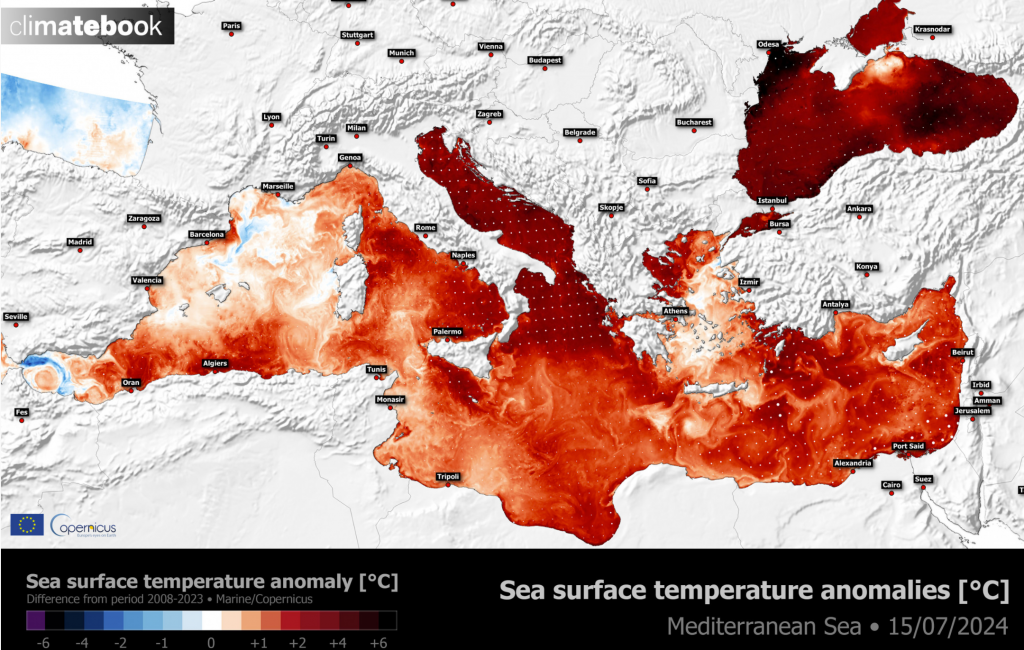Sea surface temperatures in the Mediterranean remain far above normal in some areas, but the Aegean Sea seems to be benefiting from the cooling effect of the seasonal ‘meltemi’, says Climatebook.gr.
Sea Surface Abnormalities in the Mediterranean
Using data from Copernicus satellites from July 16, Climatebook.gr reveals that sea-surface temperatures in the Adriatic Sea are 6 degrees Celsius above normal, and from 2-4 degrees in the southeast.
Smaller deviations have been recorded in the Ioannina and Tyrrhenian Sea (up to 4 degrees) with overall temperatures between 27 to 29 degrees Celsius.
The Aegean Sea is the only area around Greece where temperatures are close to normal, around 24 degrees Celsius, helped by meltemi.
The western Mediterranean actually has sea surface temperatures around one degree cooler than normal, chilled by local northerly winds.

Data derived from Copernicus satellites and published by Climatebook.gr
Meltemi and Upwelling
Although not mentioned by Climatebook.gr, the meltemi wind can cause something called ‘upwelling’.
The meltemi, a strong, dry north wind that blows from northern Europe to the Med in the summer, can cause sea surface waters to move away from the coastlines, causing a phenomenon known as coastal upwelling.
Coastal upwelling allows colder, nutrient-rich waters from the deeper levels of the sea to rise towards the surface.
The nutrient-rich waters support increased biological productivity, including phytoplankton growth, which in turn can support higher trophic levels such as fish populations.
When the meltemi wind is prevalent, coastal upwelling can occur in the Aegean Sea and other parts of the eastern Mediterranean, contributing to the region’s marine productivity and ecosystem dynamics.


